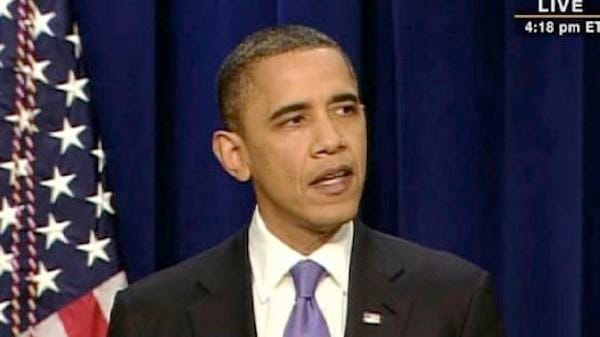Transparency in Government and the American Democracy


Upon entering office, President Obama issued two orders about transparency in government that were released in the form of memos. The first said, "The Government should not keep information confidential merely because public officials might be embarrassed by disclosure," and the second memo declared, "My Administration is committed to creating an unprecedented level of openness in Government." However, the Obama administration has prosecuted a record number of government leakers and whistleblowers.
One of the tools the Justice Department has used to prosecute whistleblowers is the 1917 Espionage Act. Originally passed when the United States entered World War I to prevent interference with the execution of the war, the Espionage Act was only enforced three times by presidential administrations prior to Obama, but the current administration has invoked the act at least six times.
Marine private Bradley Manning, who is accused of providing sensitive Pentagon information for the whistleblower site WikiLeaks, is one of the more notorious examples, but former National Security Agency (NSA) executive Thomas Drake, former FBI translator Shamai Leibowitz, and former CIA officers Jeffrey Sterling and John Kiriakou have also been brought up on charges of the Espionage Act.
What makes the majority of these cases controversial is that they have less to do with espionage, or the act of spying, and more to do with leaking information to the press. Drake's case, which centered on inefficiencies and constitutional violations at the NSA that appeared in a Baltimore Sun article, ended in a misdemeanor plea deal.
Leibowitz, who uncovered recordings of concealed relationships between Israeli spies and US government officials with an agenda of spreading misinformation about Iran's nuclear program, pled guilty and was sentenced to the minimum 20 months in prison.
Kiriakou was prosecuted for leaking at least one name connected to waterboarding and Sterling was prosecuted for revealing information about a foiled plot to undermine Iran's nuclear program in the 1990's. Kiriakou is awaiting sentencing and Sterling is still under indictment.
As a US Senator, Obama criticized President Bush saying, "there's been a tendency on the part of this administration to try to hide behind executive privilege every time there's something a little shaky that's taking place." As president, Obama invoked its use in August when Attorney General Eric Holder refused to disclose documents related to the "Fast and Furious" ATF operation, the unsuccessful plan to track firearms used by drug gangs in Mexico.
Republican presidential candidate Mitt Romney has been the subject of transparency, particularly as it relates to his tax returns, but the White House challenger has not made many public pronouncements on transparency in government.
Not indicating the candidate's position on transparency, campaign spokeswoman Andrea Saul said after the invocation of executive privilege, "President Obama's pledge to run the most open and transparent administration in history has turned out to be just another broken promise." The Romney campaign website does not include any pages about Romney's position on transparency.
At the end of 2011, President Obama signed the National Defense Authorization Act (NDAA) which, among other prerogatives, codified many national security measures started under President George W. Bush.
Among the more controversial measures was the authority given to the president to indefinitely detain prisoners without charge and the authority to assassinate anyone, including an American citizen, without indictment or trial if he or she is considered a terrorist suspect.
Assisting the president in this determination is a secret panel that is an arm of the National Security Council. The people on this panel who advise the president are not publicly known and are accountable only to the president.
Briefly an issue in the Republican primary process, Romney asserted that he would have signed the NDAA "as written." Romney also drew criticism during his 2008 presidential bid for answering, "You sit down with your attorneys" in response to a question of whether as president, "you need to go to Congress to get authorization to take military action against Iran's nuclear facilities."
Although not much of an issue in the 2012 election, transparency in government is something many Americans care about and whoever prevails in Tuesday's election will likely give their answer on transparency quickly.



